Living Vicariously Through Tumblr and Music in the Mid-2010s
Being a teenage girl in this era was exciting... and also kind of damaging.
I sometimes refer to an era of Tumblr when discussing, let’s see, The Neighbourhood (“Sweater Weather” dudes), Lana Del Rey (not explaining her), and Citizen (specifically Youth Citizen). This is funny to talk about because all of my friends know what I’m talking about when I mention this era, but it can be a blindspot in music journalism. Not necessarily that music outlets don’t cover these artists (we know they cover Lana), but that they don’t really talk about That Time (I’m talking about it as if it was the Dark Age, which, tbh, it kind of was) or they didn’t cover releases from that time that felt important.
There was a trifecta: The Neighbourhood, The 1975, and Arctic Monkeys. Every girl in an American Apparel tennis skirt owned exactly three records: The NBHD’s I Love You., The 1975’s self titled, and Arctic Monkeys’ AM. Arctic Monkeys being lumped in there was honestly such a phenomenon; to us Tumblr users, as far as we were concerned, the band had no albums before that one. AM was their Tumblr debut. They did not exist before Alex Turner sang, “Why’d you only call me when you’re high?” his voice as smooth and refreshing as freshly brewed coffee.
Lana Del Rey and Citizen weren’t excluded from this. Lana was always there, watching over in flower crown edits. These guys—Jesse Rutherford, Matty Healy, Alex Turner—they were simply boys to fawn over. They had voices of angels; that may have been the source of the appeal, along with the poetic lyricism (practically manufactured for lyric edits) and the aesthetic. The bad boy aesthetic. Slicked-back black hair, leather jackets, tattoos (does Alex Turner have tattoos? Probably). They were the boys that Lana sang about. And Lana—she was our Goddess. We wanted to follow in her footsteps. We listened to her music and took notes. We lived vicariously through her recklessness, while reblogging artsy photographs of sunsets, drugs, gas stations at night, couples, neon signs. We were living a life on Tumblr, and these musicians provided the soundtrack.
Source: karl-shakur
Citizen? It’s weird—the way they floated between very different niches: Emo Tumblr and this Rosy, Pretty Tumblr. I’ve said this a million times, that Citizen’s success with Youth largely had to do with the aesthetic. This aesthetic was bizarrely similar to Lana’s and The NBHD’s etc. The album art was an image that fit into the Look of their Tumblr realm. Flowers were a big deal for it; they were a dealbreaker! If a Lana fan sees the image—YOUTH spelled out in red, pink, yellow flowers against a white background—they will likely want to know more. The image became ubiquitous. You could reblog it and not even know it was an album cover. This is partly because a fundamental philosophy of this Tumblr realm—the one in which Lana was the all-powerful Goddess—consisted of this obsession of youth, of being young, of being a reckless teenager, of staying young, of not having responsibilities, of having so many emotions, of living forever, of being invincible. And a lot of Lana’s music relied on the idea of youth as well; her song “Lolita,” a bonus track on Born to Die, is a prime example of this. It fulfilled the Tumblr fantasy of being young and reckless—it perpetuated this desire to be desired, to be notorious, to be hedonistic. And a lot of this was because we were bored. We were privileged and bored! The only way to satisfy this was to play a character in a James Franco movie (O.K. fine—I’m really just referencing Palo Alto). Tumblr, in a way, helped us figure out our sexualities, but also kind of messed it up. Were we reblogging aesthetic images that said “Daddy” because we thought it was pretty or because we had a daddy kink? And if we thought we had a daddy kink, did we actually? Or did the Internet just make us want to be edgy and sexually interesting?
Source: allcapslyhrics
The Internet changed what it meant to be a teenager—especially a teenage girl. To be a teenage girl on Tumblr was to be unified with one another in our privileged boredom and living vicariously through these songs. Citizen’s songs were, instead, the soundtrack of our boredom. Youth was the kind of record to hang up on your wall—and it was a symbol of simple sadness. Songs to cry to, songs to scroll Tumblr to and stare at photographs of older guys with knuckle tattoos. If they’d abandoned the emo sound and gone with indie like The NBHD and The 1975 and Arctic Monkeys, they would’ve fit in perfectly. They were close, but it was too specific, not palatable enough, just a little too edgy.
I Love You. was a great record for depression. The Neighbourhood were never, ever considered an emo band, but I always thought of them as one. What are they? Dark indie? I don’t know. The popularity of this record really is evidence of the way Tumblr and the Internet in general became this collective space for mourning. Depression was everything. Aside from “Sweater Weather,” their second biggest track from I Love You. was “Afraid”:
You’re too mean, I don’t like you
Fuck you, anyway
You make me want to scream at the top of my lungs
It hurts but, I won’t fight you
You suck, anyway
You make me want to die, right when IWhen I wake up, I’m afraid
Somebody else might take my place
It’s a violently depressing song—one that plays heavily with misanthropy. But maybe what people liked about it was this razor-sharp edge—this flirtation with danger, because that’s what we liked about Jesse Rutherford anyway, he was a bad boy. Mat Kerekes… he was not. He was a sad boy, a soft boy—and when did we start appreciating those? Either way, he didn’t fit the role. He didn’t have the Look for flower crown edits.
The 1975’s appeal is almost too easy, algorithmic. Matty Healy knew what he was doing making the first line of “Robbers”: “She had a face straight out of a magazine.” Or even when he was titling the songs: “Sex,” “Talk!” “M.O.N.E.Y.” Do I even have to write about their impact? I was never too into them, to be honest—I was probably aware of how palatable it was, how directly Tumblr it seemed. Girls on Tumblr would find out “Chocolate” was actually about heroin and giggle to themselves, feeling mischievous. The album itself is a Tumblr feed. This is why only they could fill the fucking 50 minute record with a bunch of totally forgettable songs—a song can sound completely forgettable, like “Fallingforyou” does, but the title makes up for it, along with the probably-most-reblogged-lyric-fucking-ever: “I don’t want to be your friend / I want to kiss your neck.” It was made to float in between photographs of hickeys and chokers on Tumblr. I remember listening to the song, being bored out of my fucking mind, and finding out the lyric comes at 2:54 with absolutely no payoff. I wanted to like the song for its aesthetic, but… jeez.
At the end of the day, the goals of Tumblr and the goals of music were not all that different. Both served as an escape—whether that’s what the creators intended or not. And the escapes had to be immersive, intense, all-encompassing. Which may be why this generation ended up being hyper-sexual, mostly awkward people with short attention spans who are used to living vicariously more than actual living. The Internet is safe. We are safe consuming art about dangerous things. But this is why everyone can be obsessed with categorizing themselves, which inevitably leads to an identity crisis—because no one can categorize themselves and no one should want to. Life is not as simple as the Internet. You can’t turn yourself into a pretty, pink-filtered Instagram grid. You can’t turn yourself into The 1975’s cohesive, monotonous self-titled record.
It’s weird—the way the Internet can make you want to fit into a box. It’s ironic that Lana regurgitates that Walt Whitman quote that’s in her Twitter bio: “I contain multitudes.” The reason Tumblr loved her was because she didn’t. She was a symbol. She was a category of woman that most girls wanted to fit into.
When I said in the beginning of this piece that this is sort of a blindspot in music journalism, maybe one of the reasons was because teenage girls weren’t staff writers at Pitchfork. And what did this mean? It means Pitchfork didn’t review Youth by Citizen or I Love You. by The NBHD (insane to me), and The 1975’s self-titled got a 5.9 by a man who was in his early thirties. Of course it would! He is not the target audience—not by far! And the review says nothing of its impact, nothing of why it is so powerful to its listeners. It talks about the music technically, and that’s not the point! The point is the concept, the aesthetic, the world it inhabits—which is the case with all Tumblr-loved music. Everything was symbolic. Urban Outfitters understood this, completely. Which is funny, because the one store where I have ever found a Citizen cassette was there.
I Love You., according to its Wikipedia page, had a “mixed” reception, its score averaging at 48/100 based on 8 reviews. This, to me, is offensive! It cites a particular review on AllMusic, which concludes with: “Without any breaks in the clouds though, the heavy pressure just builds and builds, leaving the listener with an overall experience that is oppressively grey and joyless.” If you were a teenage girl on Tumblr, you’d know why this is the reason you loved it. It’s immersive in its greyness—like a drug. You listen to it to float around in its haze; it materializes your depression, makes you feel comfortable in it.
I texted my friend Stephanie for some quotes from fellow Tumblr veterans. I asked her if she liked The 1975, and she said yes. “Do you think the Internet played a role in your interest in them?” I asked. She said: “I definitely discovered them through like Tumblr or that app 8tracks when it was a thing.”
This reminded me of a recent discovery I made while going through my old email.
Oh, yes. I made this. And it got listens, man. And I was a privileged, healthy 14-year-old who carefully picked the background to be a photograph of a girl with a thigh gap smoking a cigarette by the water. God.
8tracks was, I think, someone trying to take advantage of Tumblr’s obsession with using music as an aesthetic. Because Tumblr didn’t have the ability to stream songs or make playlists, 8tracks filled that in. It was the musical component. Except it was ephemeral; it shut down at the end of 2019 because its model was… insufficient. They saw an opportunity, and it made sense, but it didn’t really make sense. Like a lot of things on Tumblr, the best part about it was just the idea of it. Like cigarettes.
Recently, Andrew Unterberger of Billboard, whose taste I admire, wrote about the immortality of The NBHD’s hits. People still put on “Sweater Weather” when fall approaches. TikTok, also, has started reviving it—which teenagers on the app probably will with all Tumblr-loved songs, because the aesthetics of the Internet aren’t too different now. If anything, they want even edgier art. If 100 Gecs is what interests this generation’s teens, then damn, I guess I was boring for getting a thrill from Alex Turner singing “Maybe I’m too busy bein’ yours / To fall for somebody new.” But maybe as our time with the Internet stretches out, what we need to preoccupy ourselves when we’re bored and privileged needs to be more. As we spend more time online, we demand more things, crazier things to live vicariously through. Our attention spans are too short for The 1975’s lackluster instrumentals—the only solution is…. hyper pop. We want an overload. We don’t want a soundtrack that plays in the background, we want batshit music in our face. Okay, maybe the aesthetics of the Internet are different now, but the groundwork is the same—bored, privileged, getting hornier with by the second. Maybe the hyper pop that’s blowing up now is the product of teenagers spending time on Tumblr and wanting to make the soundtrack for it themselves.
However, as this landscape is changing, we still find ourselves clinging to the nostalgia of when we were teenagers and bored and on Tumblr, and so we throw on “Sweater Weather” just for fun, or maybe even 2015’s “Daddy Issues” to remember what it was like to be a vaguely horny virgin. Retrospectives in music writing, I think, are especially important in this context. Since teenage girls on Tumblr were, like I said, not Pitchfork staff writers, they are the people who need to talk about this insane era. I guess the whole point of this article is… Pitchfork, you know where to reach me.
No. That’s not hot I’m ending it. I would like to end it with some funny content from my Tumblr, but after going through one email account and another and another, and then after clicking a broken link and another and another, I’ve given up. The only remnants I have from my time on Tumblr in those days is the music. I will leave you with what was always my favorite song from The NBHD.




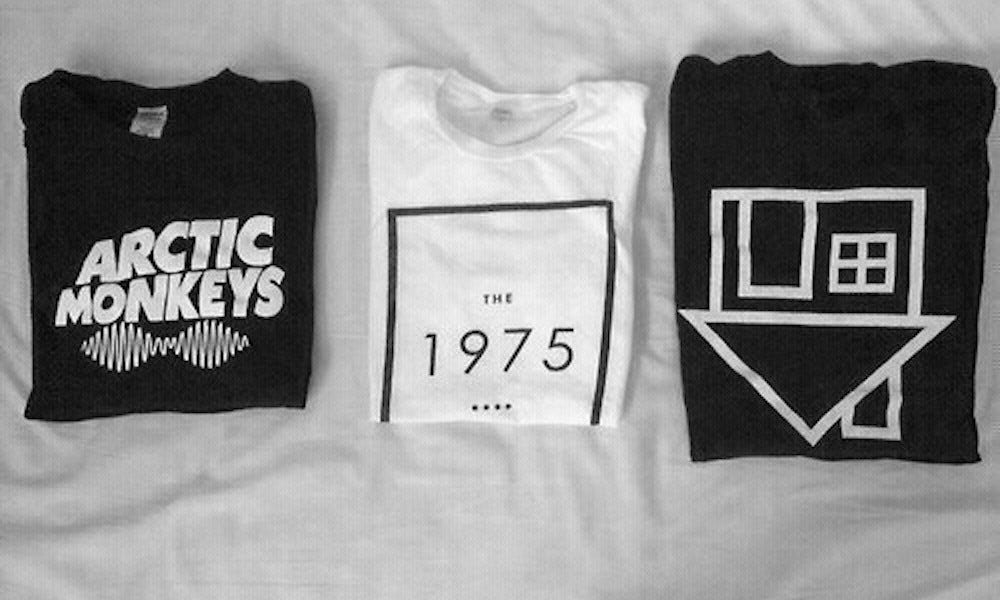
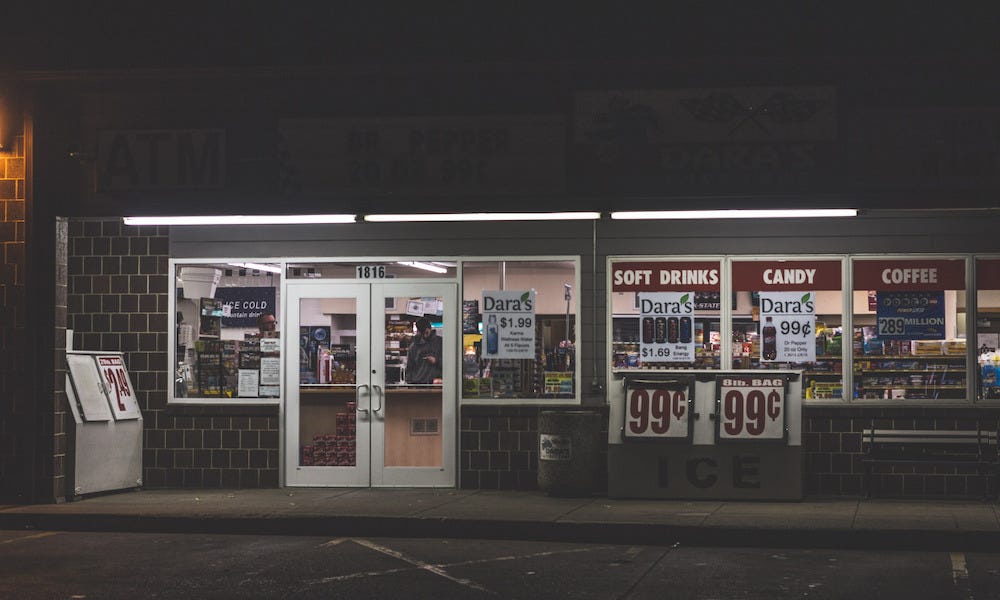
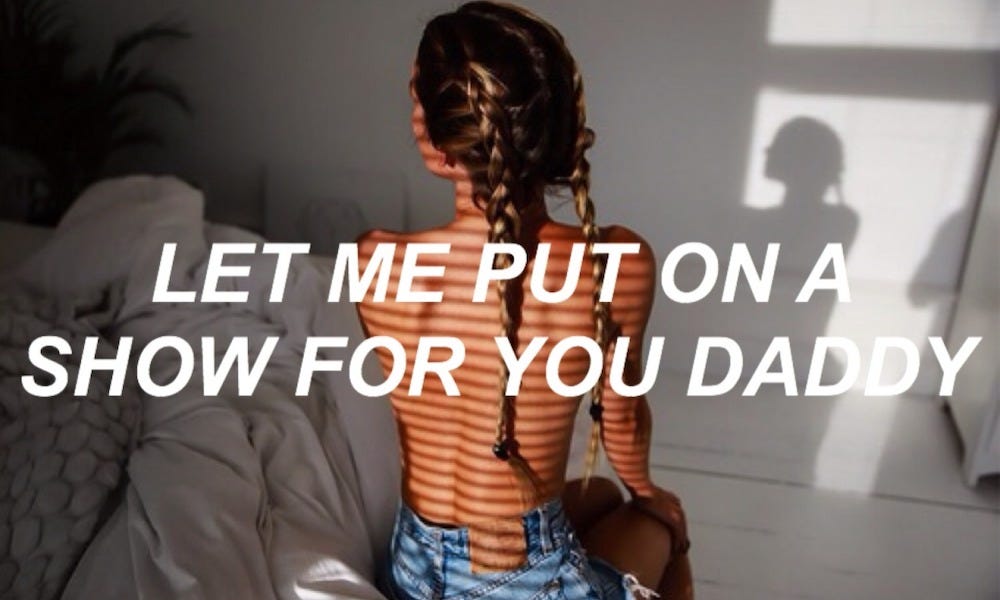
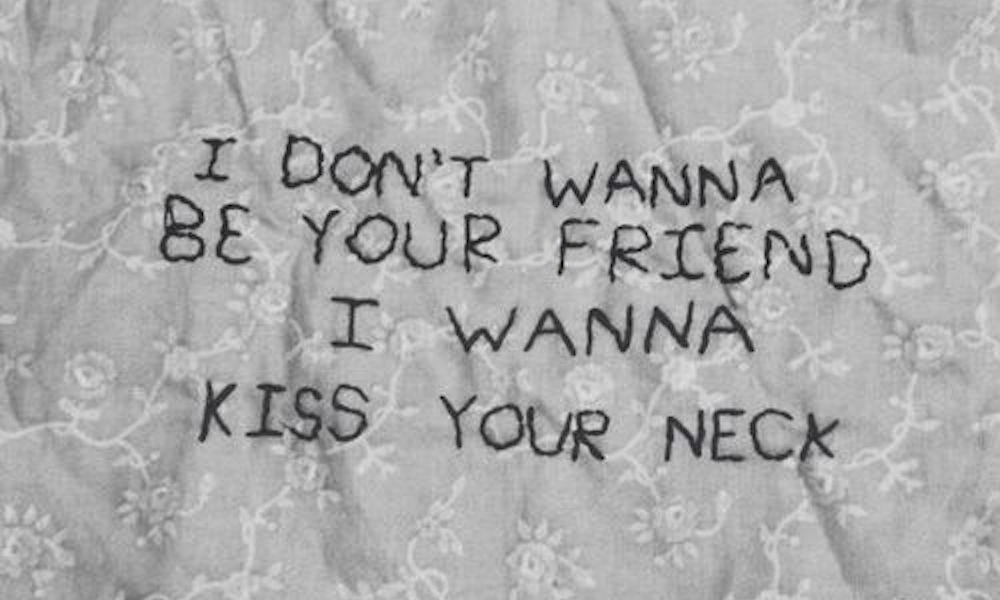
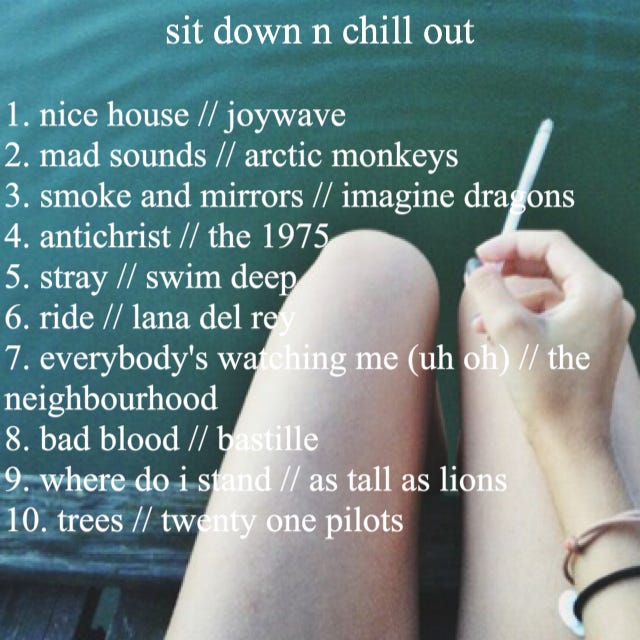
this is one of my favorite essays of all time, love it !! <3
this is way fuckin accurate